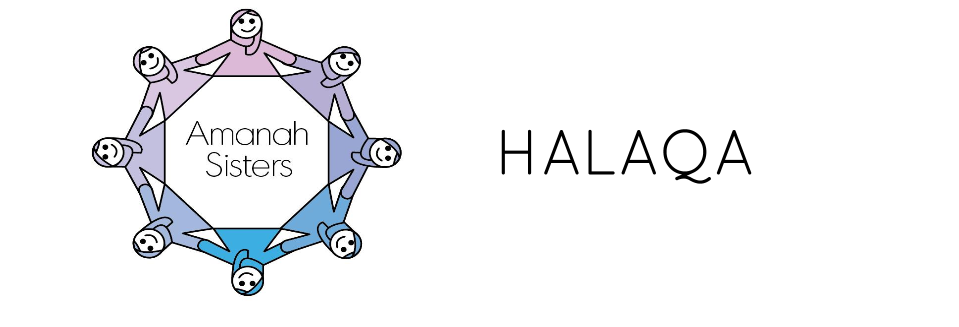﷽
Safar 13, 1439
Growing
from our Past
Year 4
Attendance:
- 12 Sisters
- 5 Junior Sisters
- 6 Junior Guests
Location: Headquarters
Agenda: (please note, we have included many links where you can read in detail more on each subject)
- OPENING DUA
Sister Marwa read our opening Dua.
O Allah, bless this Halaqa, allow us to gain, act upon and share beneficial knowledge.
Guide us, forgive our sins and grant us Jannah with our families and loved ones.
O my Lord increase me in knowledge*. رَّبِّ زِدْنِى عِلْمًا Ameen
- QURAN RECITATION: TAJWEED/LEARN ARABIC
We listened to the Surah Quraish
The above link has both the recitation by Sheikh Husary and the individual word pronunciation (click on each word) for learning Arabic.
Sisters who practice their reading in sha Allah will have an opportunity at the next Halaqa to have a sister listen to their recitation.
Note: Using a notebook
Tajweed isn't like other topics you listen and internalize and reflect on etc. There are specific and certain rules, and it helps to have a spot for your notes to review, go back to. It is proven that writing notes yourself versus getting a printed handout for example solidifies information more and faster. Note-taking in general increases benefit extraction from Halaqa and is a good step in general to take when seeking knowledge. An option as well is to review the material post Halaqa using the website.
Tajweed rule
Sister Dania presented our Tajweed Rule.
Alhamdulillah, Sister Noora has volunteered her time and expertise to teach sisters Arabic and Tajweed. Please contact us to join our learning Arabic group if you would like to take advantage of this generous offer.
- QURAN RECITATION AND REFLECTION
Note: We have an ongoing survey to accept feedback for our Halaqa’s.
One idea we received was to recite Surah Fatiha after our opening dua.
We discussed this with the sisters present and have decided to move the Quran Recitation and Reflection
to follow the Opening Dua directly, followed by our Tajweed lesson.
We read Surah Fatihah aloud altogether, then sisters individually read aloud a few letters/words, ayahs (according to her ability and with the help and encouragement of her fellow sisters). We read Surah Yusuf from Ayah 53 to Ayah 63. In sha Allah, this will be an ongoing part of our Halaqa and one day in sha Allah, we will have Khatam Quran and begin again.
We read an English Approximation (Sahih International) of the above verses.
We have chosen to use Tafsir Ibn Kathir.
Volume 5 Page 179-184 (From our library shelf)
We only had enough time to read:
“Yusuf’s Rank with the King of Egypt”
“Yusuf’s reign in Egypt (last part)”
“Yusuf’s brothers travel to Egypt”
You can view this tafsir online: Link
- WOMEN AROUND THE MESSENGER
After reading a summary of Aminah bint Wahb, the sisters present discussed the material presented, in which there were several details provided without references, proofs or evidence. Therefore, it was decided that it was best to suspend following the book, and choose a new book to follow instead.
- A TEMPORARY GIFT
Sisters Walaa and Rim read the Introduction: pages 18-22
- NEXT HALAQA and News
In sha Allah, our next Halaqa will be on Thursday, November 16th.
Alhamduililah, during our Halaqas we have developed new friendships, but the time for socializing is very limited. Therefore we have started a new Group called Friends and Family. In sha Allah, we will be meeting in the off weeks of the Halaqa for a mall walk and chat. We are staying in touch via WhatsApp and announce the day, time and location a few days ahead. Please send us a message if you would like to be added to this informal group.
November 11th, Syeda Khadiijah Centre 7150 Edwards Blvd Mississauga
- DON’T BE SAD
Sisters read The past is gone forever
Discussion:
- This reading ties into Asmaa Hussein’s book. She has taken the past and used it as a stepping stone to the present and to growing as a person. This reading states, “The past is non-existent.” Do you agree with that statement?
We have this book in our Library (it is currently borrowed, but you can submit a request to borrow, in sha Allah)
- NURTURING EEMAN IN CHILDREN
Sisters read a Summary of the first part of Chapter Three
- The importance of the marital relationship
- Considerations in Marriage
- Marriage and Parenting
Discussion:
The happiness of the other partner should always be placed above one’s own will or desires.
- Dua al Ghayb
Sister May, led a dua for sister M.
- VIDEO
Stories of the Prophets - Prophet Adam
Sheikh Abdul Nasir Jangda 8:01
- CLOSING DUA
Sisters Siham and Cindy read our closing Dua.
For the expiation of sins, said at the conclusion of a sitting or gathering. To listen to this dua click here
196 - "How perfect You are O Allah, and I praise You. I bear witness
that None has the right to be worshipped except You. I seek Your
forgiveness and turn to You in repentance."
سُبْحـانَكَ اللّهُـمَّ وَبِحَمدِك، أَشْهَـدُ أَنْ لا إِلهَ إِلاّ أَنْتَ أَسْتَغْفِرُكَ وَأَتوبُ إِلَـيْك
Subhânaka l-lâhumma wa bi-hamdika. Ash-hadu an lâ ilâha illâ
anta, astaghfiruka wa atûbu ilayka.
If any of this information was good and true, know that it comes from Allah subhanahu
wa ta’ala. If there are mistakes we ask for Allah’s Forgiveness and Mercy.
